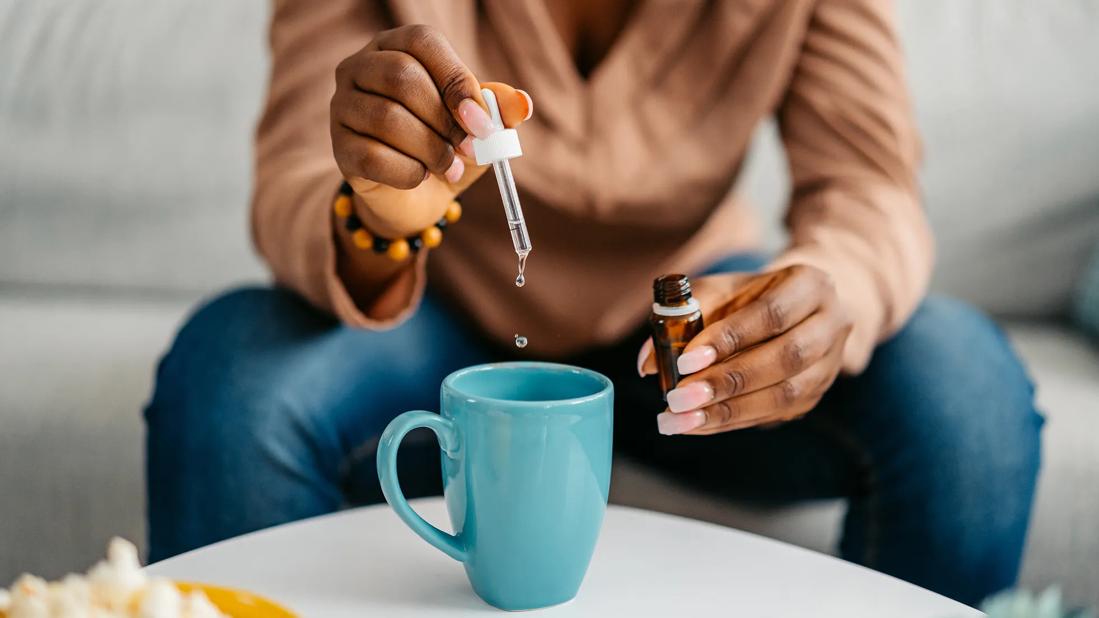There’s very little scientific evidence that this alternative medicine practice works

Homeopathy is a system of therapeutics that operates on the idea that “similia similibus curantur” or “like cures like.” It was developed at the end of the 17th century by a German doctor named Samuel Hahnemann. Homeopathic practitioners believe that exposing your body to tiny amounts of specific plants and minerals can help it repair itself.
Advertisement
Cleveland Clinic is a non-profit academic medical center. Advertising on our site helps support our mission. We do not endorse non-Cleveland Clinic products or services. Policy
For example, let’s say you have a toothache. A homeopath would create a mixture of natural remedies (like belladonna, antimonium crudum and chamomilla) and dilute it a hundred times over. They believe that diluted mixtures will promote healing and reduce that tooth pain.
That’s the theory. Now, let’s explore the practice.
Homeopaths choose an ingredient that they believe both causes and cures your specific symptoms. The ingredient is diluted (weakened) by adding water or alcohol. The homeopath then shakes the product to activate its properties — a process known as “potentization.” Then, the mixture is diluted again, with more water or alcohol. This process is repeated until the ingredient reaches the desired potency.
Many homeopathic remedies are mixed to a potency of 200c. That means one part of the tincture (the extract of the ingredient) is mixed with 99 parts water or alcohol. This process is repeated 200 times. This is such a high level of dilution that there may not be any of the material left at the end of the process.
“Some homeopaths suggest that homeopathic remedies work as nanomedicine,” says integrative medicine specialist Yufang Lin, MD. “They believe the original ingredient is broken down through potentization into nanoparticles, even if it’s below the level of detection.”
Advertisement
But very few scientific studies have found that this is an effective treatment. Those that have suggested homeopathy is promising have mostly been of poor quality. Critics of homeopathy suggest that any positive results or outcomes are due to the placebo effect.
Advocates disagree, arguing that there’s not enough research on homeopathy to dismiss the practice’s claims. They believe that more rigorous study will prove these therapies are effective.
Homeopathy hasn’t been proven effective in treating any medical conditions. And critics argue that these therapies focus on treating symptoms, instead of their underlying causes.
If you’re considering homeopathy as an addition to (not a replacement for) conventional medicine, be sure to consult with your provider before adding a new remedy to your health routine.
Homeopathy is sometimes used alongside conventional medicine to address health concerns, like:
Although the vast majority of homeopathic medicines are likely harmless, it depends on where you get them, how they’re made and how you use them. Whether the potential benefits are worth the risk is a personal decision.
Here’s some information to consider as you weigh your options...
The U.S. Food and Drug Administration (FDA) has never approved a homeopathic product for use. And they don’t handle homeopathic remedies the same way they do pharmaceuticals. Instead, they take a “risk-based” approach.
Instead of testing every homeopathic product on the market, the FDA focuses on those that come with the highest risk. Think homeopathic products marketed to vulnerable groups (like children), products that claim to prevent or cure life-threatening conditions (like cancer) and injectables.
If the FDA has serious safety concerns about a homeopathic medicine — if it’s contaminated or includes undeclared allergens, for example — the FDA sends a warning letter to the manufacturer.
The FDA has way more remedies to test than resources to actually do it. That means (as is the case for vitamins and supplements) you can’t be sure whether a homeopathic remedy is safe, properly prepared or even that it contains what it says it does on the label.
Unlike vitamins and supplements, third-party testing is still rare for homeopathic products. Always check to see whether the product you’re considering using is among those the FDA has flagged for quality or safety violations. And talk to your provider or pharmacist to ensure the products you’re considering won’t interact with other meds you’re taking.
Advertisement
Homeopathic medicines can be dangerous if you use them as a replacement — instead of a complement — to conventional medicine. And, despite marketing that advertises it as an alternative to vaccines, Dr. Lin emphasizes that homeopathy should not be used as a replacement for standard immunizations.
Again, whether you try homeopathy is a personal decision. But it’s still important to speak with a doctor or pharmacist before using a homeopathic product, just like you would for vitamins, supplements and over-the-counter medicines.
Homeopathy shouldn’t replace conventional care — so don’t put off a visit to your doctor if you have a medical concern.
Advertisement
Learn more about our editorial process.
Advertisement

This traditional Chinese medicine practice may boost mental health, immune function, balance and more

This ancient form of exercise can offer a physical and mental boost

Many claims lack science-backed research, but halotherapy is popular and considered safe

This five-day exercise plan for beginners includes three days of resistance training, two days of cardio and two days of rest

If you don’t have an underlying condition, cold plunges might help ease sore muscles, decrease inflammation and even heighten your focus

This purple perennial has many uses, including sleep hygiene, reducing inflammation and pain, and elevating mood

The nocebo effect is a phenomenon where expectations of negative outcomes may influence the results

It involves tapping specific points on your body while focusing on an emotion or issue you want to release

Wearing a scarf, adjusting your outdoor activities and following your asthma treatment plan can help limit breathing problems

Your diet in the weeks, days and hours ahead of your race can power you to the finish line

When someone guilt trips you, they’re using emotionally manipulative behavior to try to get you to act a certain way